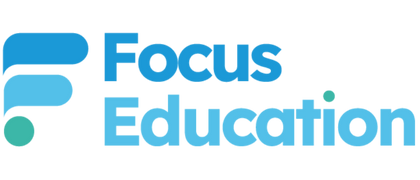Oracy Consultancy and Training
Our experienced consultants can provide an oracy professional development (CPD) day at your school or another setting of your choice. Importantly, consultants can ensure that the training is bespoke for your school. Below, we have outlined the types of activities or focus we can give to a full-day training event, a twilight or staff meeting.
Why do we need a curriculum for speaking and listening?
- Most schools believe they focus on speaking and listening, and many have identified pupils’ oracy and limited vocabulary as being major inhibitors to pupil progress.
- However, only a few schools can claim to have a clear curriculum that is progressive and links oracy activities to improvements in learning across a range of subjects.
- It is no surprise that the recent subject specific report on the teaching of English, ‘Telling the Story’, pinpoints the issue.
"Schools (often) do not consider spoken language well in their English curriculum, although they understand that spoken language underpins pupils’ reading and writing development."
"Few schools design or follow a curriculum to develop pupils’ spoken language. Schools are not always clear about how to teach the conventions of spoken language that enable pupils to speak competently in a range of contexts. Teachers often attribute pupils’ weaknesses in speaking to a lack of confidence rather than realising that they have not been taught what they need to know about the topic under discussion to be able to form and articulate worthwhile contributions."
- The challenge is that whilst schools give prominence to the teaching of phonics, often driven by government initiatives and including the phonics screening check in Year 1, they do not give equal cognisance to the development of children’s oracy skills, especially improving the use of Standard English. This can lead to many children, who have ‘cracked’ word reading, not making the expected progress in reading comprehension, which leads to many not having a ‘lifelong love for reading’.
- The issue is that even early literacy texts follow the conventions of Standard English, and from the beginning, books require children to have a ‘code of talk’ that many will not be familiar with when they start school.
- It is therefore imperative that enriching children’s vocabulary, providing them with time to improve their spoken English and helping them to present their findings more confidently should be a major part of our full curriculum, not just the English curriculum. A point clearly outlined in the new Ofsted framework.
Does your school have a specific curriculum for oracy?
How would you go about creating one?
- Our consultants can help you to create an oracy curriculum and introduce you to the ‘One Education’ achievement awards, if this is something that would help you.
- The curriculum design should give weighting to improving Standard English, increasing children’s vocabulary (including subject specific vocabulary), supporting them in presenting their findings with confidence and to listening more attentively.
- In addition, a school’s pedagogical approach needs to give greater weighting to linking new learning (including their reading) to individuals’ experiences and providing more opportunities for them to present their key knowledge from across the curriculum.
Suggested Curriculum Framework
The framework outlined will have four distinct areas:
- Being confident presenters
- Improving Standard English
- Increasing vocabulary
- Listening attentively
· The matrices below outline the key features within each area.
|
Confident Presenters |
Improving Standard English |
Increasing Vocabulary |
Listening Attentively |
|
· Having protocols in place for presenting to others in their class · Knowing how to answer questions · Knowing how to ask questions · Recognising the audience they are presenting to and making adjustments accordingly · Creating specific sentence stems for different subjects |
· Identifying frequently used incorrect terms or phrases · Identifying phrases that need to be eliminated sooner rather than later · Putting in place a system that allows staff to deal with their personal non-Standard English issues |
· Give specific attention to Tier 2 vocabulary and link this to Tier 1 · Consider Tier 3 vocabulary within different subjects · Consider a range of different activities related to vocabulary and decide which age group they are best suited to |
· Create activities specifically to ensure children listen more attentively · These can be identified for different age groups · Make use of poems and music in supporting this element · Consider the role of different group models, such as Kagen, etc |
· During the training, progression will be identified across the four phases of: EY; KS1; Lower KS2; and Upper KS2
· The framework will include several helpful posters to focus on issues such as gestures, body language and protocols
Outlining Expectations
· In addition, the training will identify progression across the following areas.
- Narrating
- Persuading
- Instructing
- Receiving Instructions
- Discussing
- Debating
- Explaining
- Questioning
· If deemed necessary, these could form part of the assessment process. The primary aim is to help teachers manage their expectations and provide a useful tool for identifying next steps for children.
Specific Issues
· Support will be provided specifically for EYFS, working with EAL children, and children with specific needs.
How to book
Contact our consultancy department by email or fill in the form here. For more information, please see our consultancy page, which will explain what we can offer.
